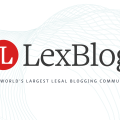U.S. District Court for the Eastern District of Louisiana
In this asbestos action, Vanessa Matherne Richardson filed suit alleging that her mother passed away from mesothelioma, which was contracted through exposure to asbestos brought home by her father, plaintiff Ted Matherne Sr., while employed at the Avondale Shipyards from 1965 to 1983. In March 2022, the court issued a scheduling order setting a January 2023 discovery deadline and a February 2023 trial date.
In December 2022, two weeks before the discovery deadline, the plaintiff filed a motion to compel defendant Huntington Ingalls Incorporated’s Rule 30(b)(6) deposition due to certain opinions expressed by its expert, Dr. Andrew Ghio, in his December 2023 report. Specifically, the plaintiff contended that, because Dr. Ghio opined that paraoccupational exposure to asbestos does not increase the risk for peritoneal mesothelioma, the plaintiff was entitled to obtain the identities and number of cases involving mesothelioma claimants who alleged exposure from work at Avondale or were living with a family member who worked at Avondale.
Huntington opposed the request on the basis that: (1) the information sought was not relevant to the issue of medical causation; (2) the plaintiff sought expert opinions, which is not the proper subject of a corporate deposition; (3) the information sought was not known or reasonably knowable; (4) the topics were broad and disproportionate to the needs of the case; and (5) Avondale does not maintain information responsive to the areas of inquiry in a manner that would enable Huntington to prepare a representative to respond. Huntington further argued that, under the “Johnnie Johnson rule,” a Rule 30(b)(6) deposition is not proper unless the topic was not covered in any prior deposition.
In reply, the plaintiff argued that their notice was narrowly tailored to address issues not previously addressed in prior depositions, and that the information was relevant because Dr. Ghio did not address other individuals who worked at Avondale, or their family members, who may have developed mesothelioma.
The purpose of Rule 30(b)(6) is to streamline the discovery process by allowing for a specialized form of deposition, giving the corporation being deposed “more control by allowing it to designate and prepare a witness to testify on its behalf.” The party seeking to depose an organization “must describe with reasonable particularity the matters for examination” and in response, the entity must designate an agent or other person to testify on its behalf. According to the Fifth Circuit, a corporate defendant must “make a conscientious good-faith endeavor to designate the persons having knowledge of the matters sought” and “prepare those persons in order that they can answer fully, completely, unevasively, the questions posed … as to the relevant subject matters available.”
Here, the court noted that “while the relevance of the identity and number of other claims against Avondale is questionable, there is no doubt that, given the lateness of the motion, the discovery deadline, and the time and burden that would be entailed in reviewing litigation records of over 35 years, there is insufficient time to adequately research and prepare a deponent to answer the questions on these topics.” The court further noted that there are less burdensome methods to obtain the information sought. For these reasons, the court determined that Huntington did not need to present a witness for the Rule 30(b)(6) deposition (thus obviating the need to research and prepare a representative to testify); however, if Huntington had previously compiled lists of cases against it, Huntington was to provide a copy to the plaintiff within 14 days.
Read the full decision here.




